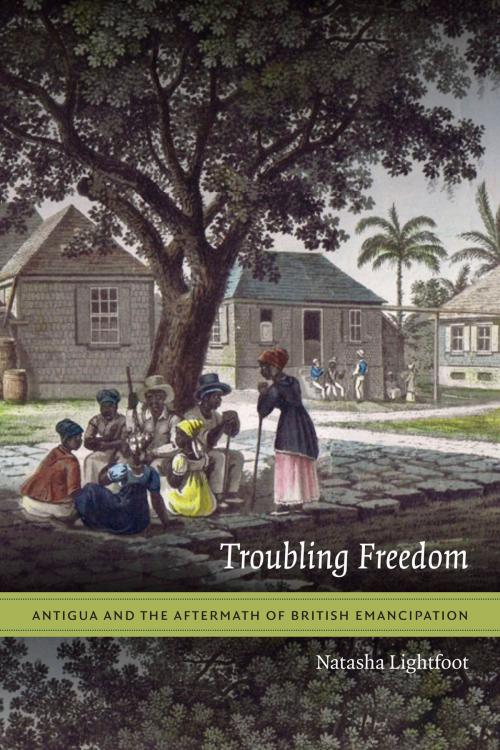Troubling Freedom
Antigua and the Aftermath of British Emancipation
Nonfiction, History, Americas, Caribbean & West Indies| Author: | Natasha Lightfoot | ISBN: | 9780822375050 |
| Publisher: | Duke University Press | Publication: | November 19, 2015 |
| Imprint: | Duke University Press Books | Language: | English |
| Author: | Natasha Lightfoot |
| ISBN: | 9780822375050 |
| Publisher: | Duke University Press |
| Publication: | November 19, 2015 |
| Imprint: | Duke University Press Books |
| Language: | English |
In 1834 Antigua became the only British colony in the Caribbean to move directly from slavery to full emancipation. Immediate freedom, however, did not live up to its promise, as it did not guarantee any level of stability or autonomy, and the implementation of new forms of coercion and control made it, in many ways, indistinguishable from slavery. In Troubling Freedom Natasha Lightfoot tells the story of how Antigua's newly freed black working people struggled to realize freedom in their everyday lives, prior to and in the decades following emancipation. She presents freedpeople's efforts to form an efficient workforce, acquire property, secure housing, worship, and build independent communities in response to elite prescriptions for acceptable behavior and oppression. Despite its continued efforts, Antigua's black population failed to convince whites that its members were worthy of full economic and political inclusion. By highlighting the diverse ways freedpeople defined and created freedom through quotidian acts of survival and occasional uprisings, Lightfoot complicates conceptions of freedom and the general narrative that landlessness was the primary constraint for newly emancipated slaves in the Caribbean.
In 1834 Antigua became the only British colony in the Caribbean to move directly from slavery to full emancipation. Immediate freedom, however, did not live up to its promise, as it did not guarantee any level of stability or autonomy, and the implementation of new forms of coercion and control made it, in many ways, indistinguishable from slavery. In Troubling Freedom Natasha Lightfoot tells the story of how Antigua's newly freed black working people struggled to realize freedom in their everyday lives, prior to and in the decades following emancipation. She presents freedpeople's efforts to form an efficient workforce, acquire property, secure housing, worship, and build independent communities in response to elite prescriptions for acceptable behavior and oppression. Despite its continued efforts, Antigua's black population failed to convince whites that its members were worthy of full economic and political inclusion. By highlighting the diverse ways freedpeople defined and created freedom through quotidian acts of survival and occasional uprisings, Lightfoot complicates conceptions of freedom and the general narrative that landlessness was the primary constraint for newly emancipated slaves in the Caribbean.















